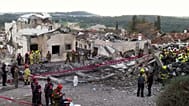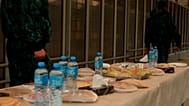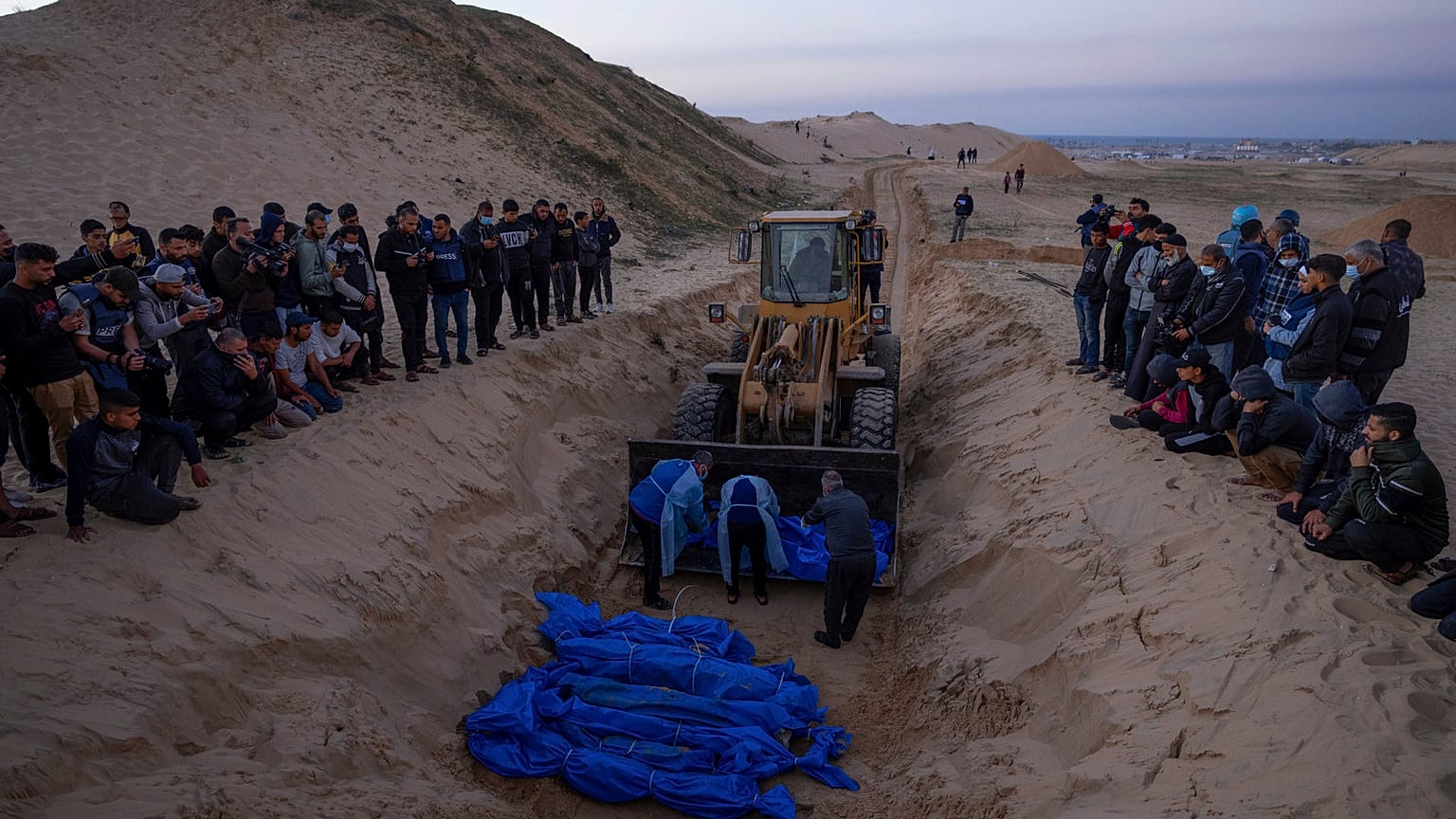The first hearing in a landmark lawsuit against Israel enters its second day on Friday at the Hague-based International Court of Justice (ICJ).
The case, filed to the top UN court by South Africa last month, claims Israel's siege of Gaza amounts to genocide and breaches the post-Holocaust 1948 Genocide Convention.
 ADVERTISEMENT
ADVERTISEMENT
 ADVERTISEMENT
ADVERTISEMENT
The Convention gives party countries, which include both Israel and South Africa, the collective right to prevent and stop crimes of genocide. Such crimes are defined as acts "committed with intent to destroy, in whole or in part, a national, ethnic, racial or religious group."
The high-stakes legal battle marks the first time Israel defends its war campaign in the Gaza Strip before a court of law since the conflict erupted on October 7. The criminal charge is also highly symbolic for a country that was created to provide security for Jewish survivors of the Holocaust, the largest genocide in history.
As ICJ cases traditionally take years before a ruling is reached, South Africa has asked the Court to provisionally call for a ceasefire to appease suffering in the besieged Gaza Strip, where, according to the Hamas-run health ministry, more than 23,000 people have been killed since October.
Israel has vowed to contest the case which it says amounts to "blood libel." Its Western allies, the United Kingdom and the United States, have also chimed in with vehement criticism.
By contrast, other nations, including Bolivia, Brazil, Colombia, Jordan, Malaysia, the Maldives, Turkey, Venezuela as well as the 57-country Organization of Islamic Countries (OIC), have formally backed the move.
So where does the European Union stand?
'Not for the EU to comment'
The EU, whose efforts to mediate in the Israel-Hamas war have been plagued by its 27 member states' incoherent positions, has mostly maintained silent on the case.
A European Commission spokesperson this week reaffirmed the bloc's support to the ICJ but stopped short of backing the genocide case against Israel.
"Regarding this specific case, countries have the right to submit cases or lawsuits. The European Union is not part of this lawsuit," Peter Stano, spokesperson for foreign affairs, said on Tuesday. "This is not for us to comment at all."
The tight-lipped response follows the EU's efforts to tread a neutral line on the conflict, endorsing Israel's right to self-defence while calling for the protection of civilian life in Gaza and unhindered provisions of humanitarian aid.
But Brussels has so far refrained from collectively calling for a ceasefire in Gaza, opting rather to urge for "humanitarian pauses" to ensure critical aid reaches civilians in need.
In a sign the bloc is slowly gravitating towards sharper calls for Israeli restraint, a majority of EU countries backed a UN General Assembly resolution calling for a cease in hostilities in December. Countries including Germany, seen as a staunch ally of Israel, have also recently condemned far-right Israeli ministers' calls to resettle Palestinians out of Gaza.
Germany, Austria and the Czech Republic - all considered staunch allies of Israel - have voiced scepticism about the case.
Speaking from Israel on Thursday as the hearing took place in the Hague, Germany's Vice Chancellor Robert Habeck said: "You can criticise the Israeli army for acting too harshly in the Gaza strip, but that is not genocide."
"Those who would commit or want to commit genocide, if they could, are Hamas," Habeck added. "Their agenda is to wipe out the State of Israel."
In a joint statement issued Thursday, the Austrian Chancellor and Czech Prime Minister expressed similar doubts.
"We oppose any attempts to politicize the ICJ," the leaders said in a joint statement.
Hungary is the only country that has explicitly condemned South Africa's ICJ case, with foreign minister Péter Szijjártó denouncing the "legal attack launched against Israel" on social media platform Facebook.
"To accuse a country that has suffered a terrorist attack of genocide is obviously nonsense," Szijjártó said. "We believe that it is in the interest of the whole world that the current anti-terrorist operations are successfully completed in order to prevent such a brutal terrorist attack from happening anywhere in the world ever again."
Supporters isolated
EU voices endorsing South Africa's lawsuit are so far sparse and isolated.
Belgium's Deputy Prime Minister Petra De Sutter, whose government is seen as the most supportive of Palestinians in Europe, said on Tuesday she would urge Belgium to formally back South Africa's case.
The Belgian government, a complex coalition of seven parties, has not yet endorsed de Sutter's call but has committed €5 million in additional funding for the International Criminal Court (ICC) - another international court based in the Hague often confused for the ICJ - to investigate possible war crimes in the conflict between Israel and Hamas.
Irish Taoiseach Leo Varadkar, whose government has been hailed as one of the most supportive of Palestinian statehood across Europe, has ruled out any possibility Ireland would join the case, despite pressure from Irish lawmakers.
"I really think this is an area where we need to be very careful," Varadkar told RTÉ Radio over the weekend.
"Hamas went into Israel (on October 7), killed 1,400 people (...) essentially because they were Israelis, because they were Jews, because they lived in Israel. Was that not also genocide?" Varadkar questioned.
Spain, also an outspoken critic of Israel's war campaign in Gaza, has also refrained from commenting despite 250 legal experts submitting a petition calling for the government's backing on Wednesday.
Speaking to Euronews, Philippe Dam, EU Director for Advocacy at Human Rights Watch, said that the ICJ case is an opportunity for the EU to "reaffirm its attachment to justice and accountability" in the context of the conflict in Gaza.
"It's essential for the European Union and its member states to be really clear that they do support judiciary and judicial processes at the international level," he said.
"They should urgently back up the initiative at the court," Dam added, "but also make sure that they will spare no effort to ensure that provisional measures from the court - that we hope will come up in a few weeks - will be complied with by Israel."














